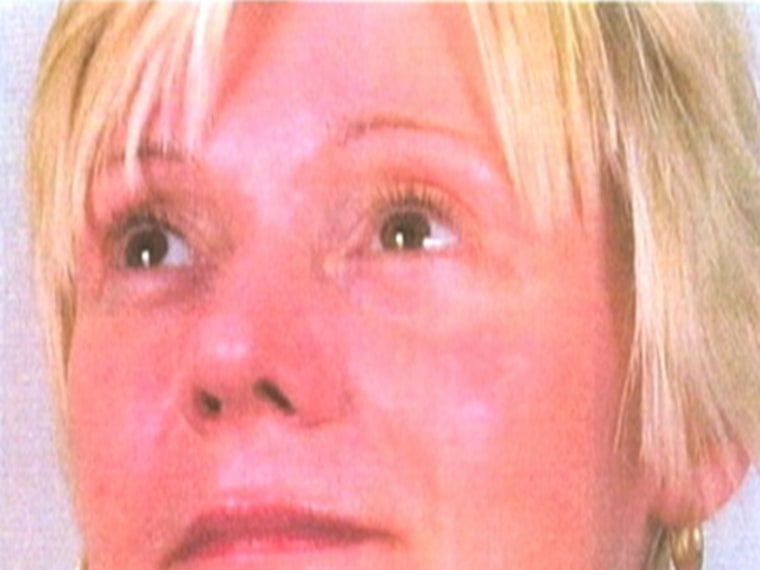It’s been nearly six agonizing years since a failed cosmetic surgery left Marilyn Leisz unable to do something most of us take for granted. Even now, after 30 surgical attempts to correct the problem, the New Jersey woman can no longer fully close her eyes. Even the simplest things — showering, sleeping — have become a nightmare.
“To take a shower, I have to put gel into my eyes so the water and the soap doesn’t get into my eyes. Then by the time the shower is done, the gel’s washed out,” Leisz told TODAY’s Ann Curry Friday. And that’s not all: Each night before bed, she has to coat her eyes in gels and medication, then don a mask to keep from scratching her eyes in her sleep. The fear of infection, glaucoma brought about by her medication, corneal ulcers and blindness haunts her continuously, she said.
On Wednesday, Leisz won at least a partial victory: A jury awarded her $115,000, finding that the surgeon whose work has left her unable to even blink had deviated from accepted practices when he performed the operation. However, the same jury rejected her claim that she had not been warned of the dangers.
As Leisz’s lawyer, Roy Konray, put it on TODAY, “The verdict — the amount — fell far short of our expectations. That said, we’re gratified that we were able to win, because malpractice cases arising out of elective cosmetic surgery are notoriously difficult to win.”
Referring to both his client and the defendant, Konray added: “I think, to some extent, the jury said: ‘A pox on both your houses.’ ”
Vision quest
Leisz’s ordeal began more than a decade ago. Born with ptosis, a congenital defect that weakens the eyelids and causes them to droop as years pass, she spent years trying to correct the condition. In 2000, she had her first eyelift, and in 2005, she underwent another.
Both were moderately successful, she said, but she soon noticed that she had developed small bumps along the creases of her eyelids. She grew concerned about her vision, she told NBC News.
A few months later, while consulting with a new plastic surgeon, Dr. Paul Parker, about having a facelift and neck lift, Leisz mentioned the problem with her eyelids. His first suggestion, she said, was to a try a scar removal product. When that didn’t work, she said, the doctor recommended a surgical procedure called a blepharoplasty, which removes excess tissue and fat from the lid.

Parker performed the surgery in August 2005. It was supposed to be a minor procedure. “I was not told that I was going to have any problems from the surgery at all,” Leisz said. “As a matter of fact, I was told I was going to have a more overall youthful appearance.”
That promise, she said, soon turned into a nightmare. She found that she was unable to close her eyes completely. Her eyes burned, she said, and her tear ducts didn’t work properly. Parker, she said, insisted that it was all part of the healing process.
30 more surgeries
But when time didn’t heal her, she turned to another plastic surgeon, who told her, and later told the jury, that in her opinion Leisz’s blepharoplasty should never have been performed. Konray credits the second surgeon’s testimony with helping sway the jury.
In the years since, Leisz has undergone 30 more painful surgeries. As a result, she can now partially close her eyes. But without additional risky surgery, there is no chance that she will ever regain the simple ability to blink or to completely close her eyes when she sleeps.
And even if she does undergo such surgery, called an eyelid skin graft — which would require the surgeon to remove and replace three centimeters of skin near her eyelashes — there are no guarantees.
“It’s major surgery,” Leisz says. “There’s a lot of risk involved with that. The cosmetic outcome is poor and the graft failure rate is high … It’s a very risky procedure.”
For now, Leisz says, she continues to cope with the hardships of her condition and is trying to deal with the fear that some day, she will lose her sight altogether.
“I feel like my whole life has been stolen from me,” she told NBC News. “Your eyesight affects everything that you do.”